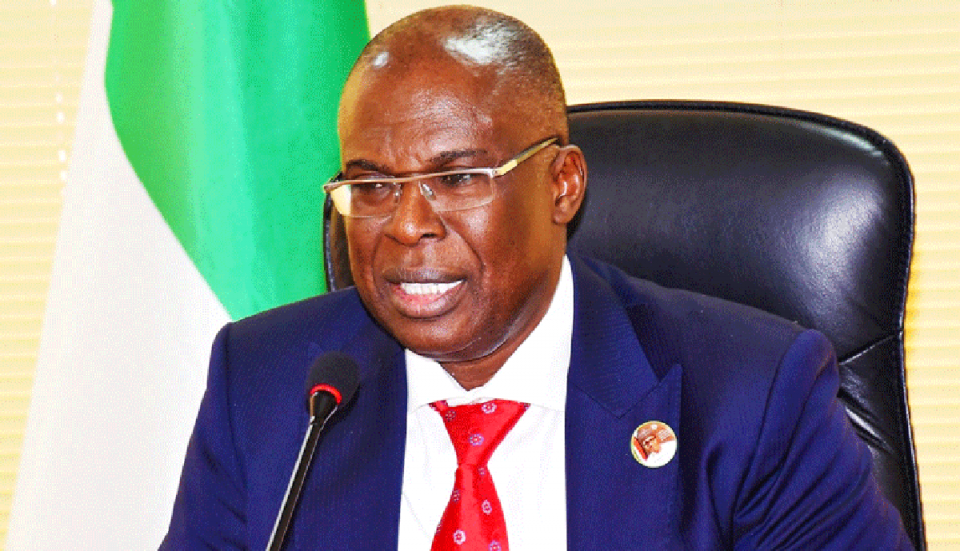*To meet NNPC boss, Finance Minister, CBN Governor, NEITI, others
The House of Representatives has started moves to transfer assets of the defunct Nigeria National Petroleum Corporation (NNPC) to NNPC Limited.
Section 54 (1) of the Act states: “The Minister of Petroleum and Minister of Finance shall within 18 months of the effective date determine the assets, interests, and liabilities of NNPC to be transferred to NNPC Limited or its subsidiaries and upon identification, the Minister shall cause such assets, interests, and liabilities to be transferred to NNPC Limited.”
The House Ad-hoc Committee, set up to ascertain the total inventory, assets, interests, and liabilities of the Corporation, said to this effect, it will meet with the Chief Executive Officer of NNPC Limited in the coming days.
The Ad-hoc Committee Chairman, Hon Kingsley Uju Chima, who disclosed this after their meeting, said they were also going to interface with the Minister of State for Petroleum Resources, Governor of Central Bank of Nigeria (CBN) and Minister of Finance, Budget and National Planning.
Chima said the Ad-hoc Committee had resolved to request for detailed information on NNPC assets, interests, liabilities and up-to-date audited reports from the CEO of NNPC Limited.
He said they have also resolved to request for yearly audited reports of NNPC from Nigeria Extractive Industries Transparency Initiative (NEITI) with a view to juxtaposing the NNPC audited reports with that of NEITI.
Hon. Chima observed that despite the abundant natural endowment, the oil and gas industry has been plagued with corruption, mismanagement, crisis, environmental degradation, lack of refining capacity, among others.
“The decision of the House is in sync with the provisions of Sections 88 and 89 of the 1999 Constitution of the Federal Republic of Nigeria (as amended). It is also hinged on the provisions of Section 54 of the recently signed Petroleum Industry Act 2021.
“The legislative intervention is in alliance with section A 1.03 of the introduction part of the Legislative Agenda of the 9th Assembly (2019 – 2023) which states that, ‘the 9th House will seek to undertake reforms of critical sectors of the Nigerian society and economy with a view to improving the conditions that allow for investment, innovation, and economic growth.’
“Crude oil dominates Nigeria’s economy and accounts for about 86% of export earnings in our country. We have the largest oil and gas reserves in Sub-Saharan Africa with an estimated 37 billion barrels of oil and 188 trillion cubic feet of gas as of July 2021.
“It is depressing that, despite the abundant natural endowment, the oil and gas industry has been plagued with corruption, mismanagement, crisis, environmental degradation and lack of refining capacity, among others.
“Section 54(2) of the Act also stated that any assets, interests, or liabilities not transferred shall remain that of NNPC until extinguished or transferred to the government six months after the determination in section 54(1).
“The Minister of Finance and Attorney General of the Federation shall develop a framework for payment of liabilities not transferred to the NNPC Limited. If the determination and transfer is not done within the stipulated 18 months, the assets, interests, and liabilities are deemed transferred to NNPC Limited,
“The Petroleum Industry Act, 2021 was enacted to cure the maladies of the oil and gas industry and provide legal governance, the regulatory and fiscal framework of the Industry. It came at a time when fossil fuel-reliant frontier markets are contending with the implications of the global transition to cleaner and renewable energy sources.
“In the last 20 years, multiple governments have attempted to pass an all-encompassing petroleum industry bill which has been successfully done by the 9th Assembly. The PIA is categorized into five chapters, 319 Sections, and eight schedules.
“Chapter 1 provides for the governance and institutions of the industry. It introduces dual regulators, the Nigerian Upstream Petroleum Regulatory Commission and the Nigerian Midstream and Downstream Petroleum Authority.
“Chapter 2 details the general administration of the oil and gas industry and other related matters.
“Chapter 3 provides for the host community development Chapter 4 introduces the Petroleum Fiscal Industry Framework (PIFF).
“Chapter 5 provides for miscellaneous matters, which deal with legal proceedings relating to any suit and other related matters,” the chairman stated.




